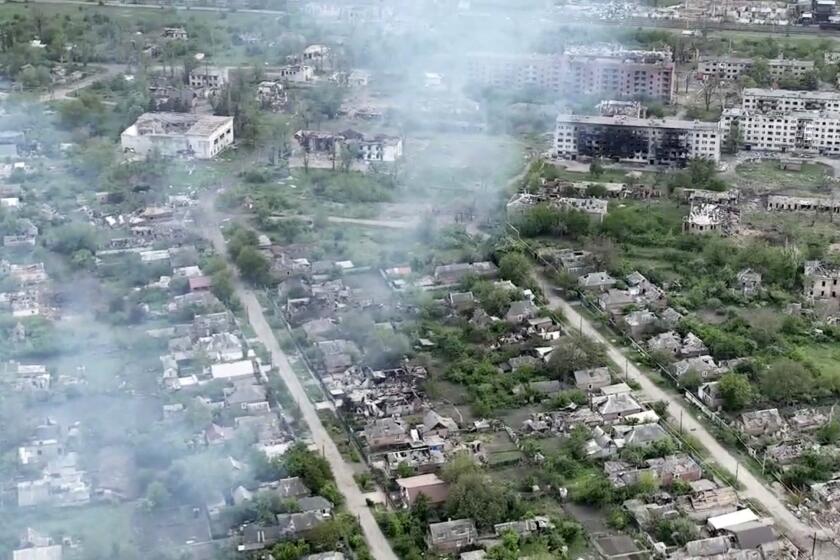Free Alan Johnston
IF HAMAS WANTS TO show that it intends to govern Gaza and not merely squat on that strip of misery, it should arrange the release of BBC correspondent Alan Johnston.
Wednesday marked the 100th day of captivity for Johnston, the last foreign correspondent to actually live in Gaza, where he has been based since 2004. He was abducted in March by a group that calls itself the Army of Islam but is reportedly more of an armed clan of smugglers and guns-for-hire than a political movement. In exchange for Johnston’s freedom, the hostage-takers have demanded the release of various Palestinian prisoners, including a cleric with Al Qaeda ties who is being held in Britain. That demand has sparked speculation about whether the reputed head of the Army of Islam, Mumtaz Dagmoush, a leader of the Dagmoush clan who is reportedly estranged from Hamas, is trying to forge an alliance with Al Qaeda or might have been paid by someone else to snatch Johnston.
Be that as it may, Hamas had denounced Johnston’s kidnapping even before it routed Palestinian President Mahmoud Abbas’ Fatah forces in a bloody, six-day civil war that ended last week, and promised it would free him soon. Immediately upon its victory, it gave Dagmoush 24 hours to release Johnston. The Army of Islam responded by threatening to kill him. Hamas has promised law and order in Gaza, however, and if, after throwing Fatah rivals off rooftops and other atrocities, it wishes to show the world that it can in fact reimpose civilized norms in Gaza, it should deliver Johnston unharmed.
The Johnston case has broader implications in an age when shooting the messenger has become a standard technique of Islamist terror. It’s no coincidence that murders of journalists worldwide are increasing. To suppress information is to hoard power; it kneecaps democratic development. Consider Iraq, where 32 journalists were killed last year, 13 have died this year and 14 are now held hostage. That compares with 71 journalists killed during 13 years of the Vietnam War. With death threats arriving daily, what kind of fearless reporting on Iraq’s civil strife, what kind of hard-hitting investigations of death squads and terrorists or political or clerical corruption can be expected from journalists who wish to remain alive? And consider Afghanistan, where two female journalists have been murdered this month in a Taliban campaign of intimidation against women who dare speak out in the media. What kind of civil society can bloom in their silence?
A modern society, whether in Gaza or Iraq, cannot aspire to political accountability if its press is terrorized. The American founding fathers understood this, and so does the Taliban. Where does Hamas stand?
More to Read
Start your day right
Sign up for Essential California for news, features and recommendations from the L.A. Times and beyond in your inbox six days a week.
You may occasionally receive promotional content from the Los Angeles Times.






